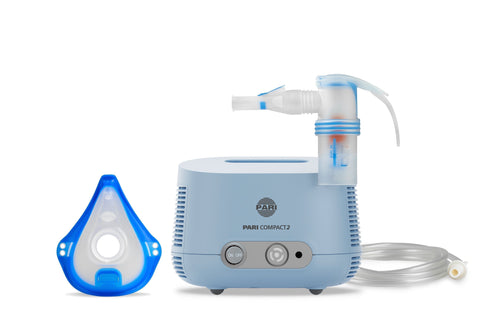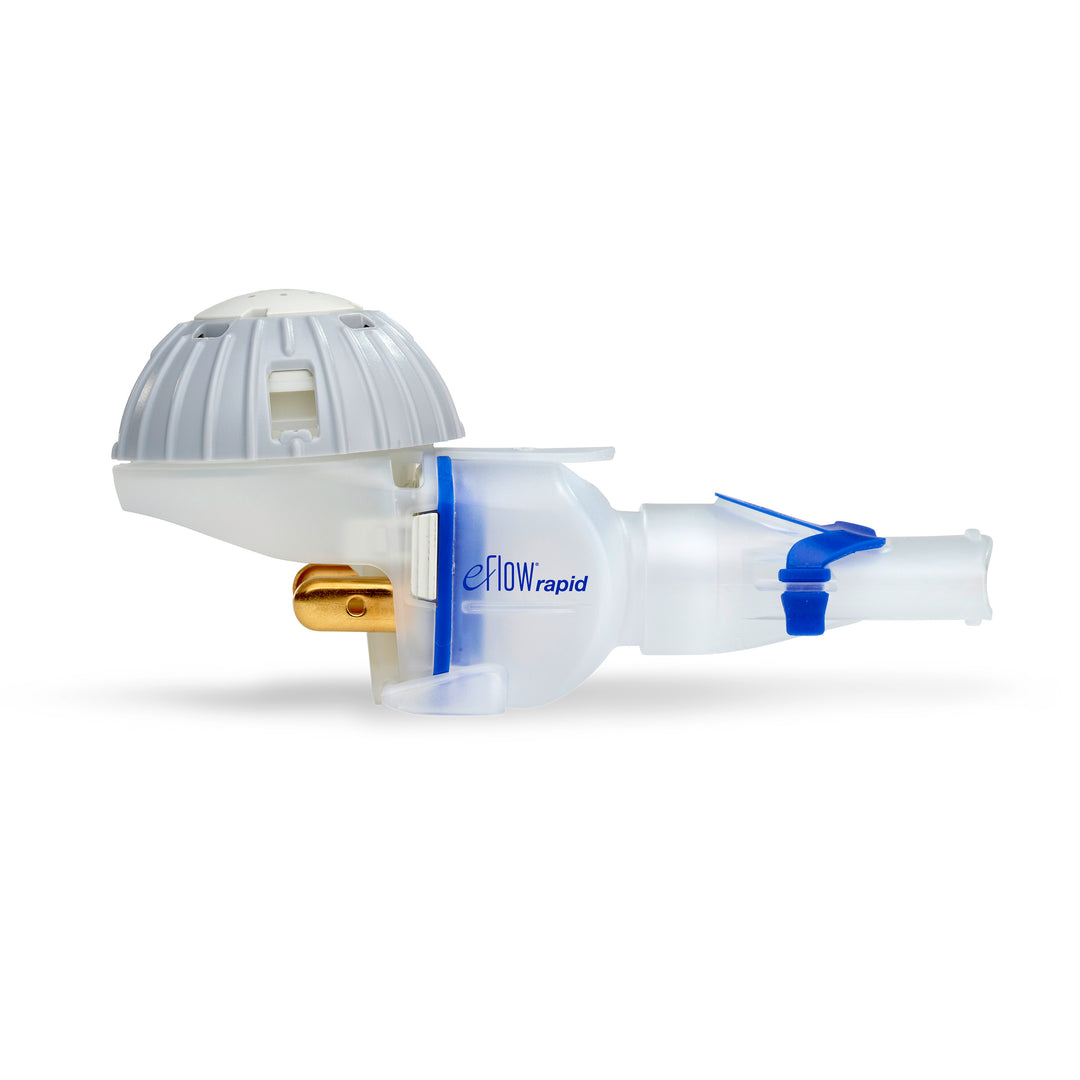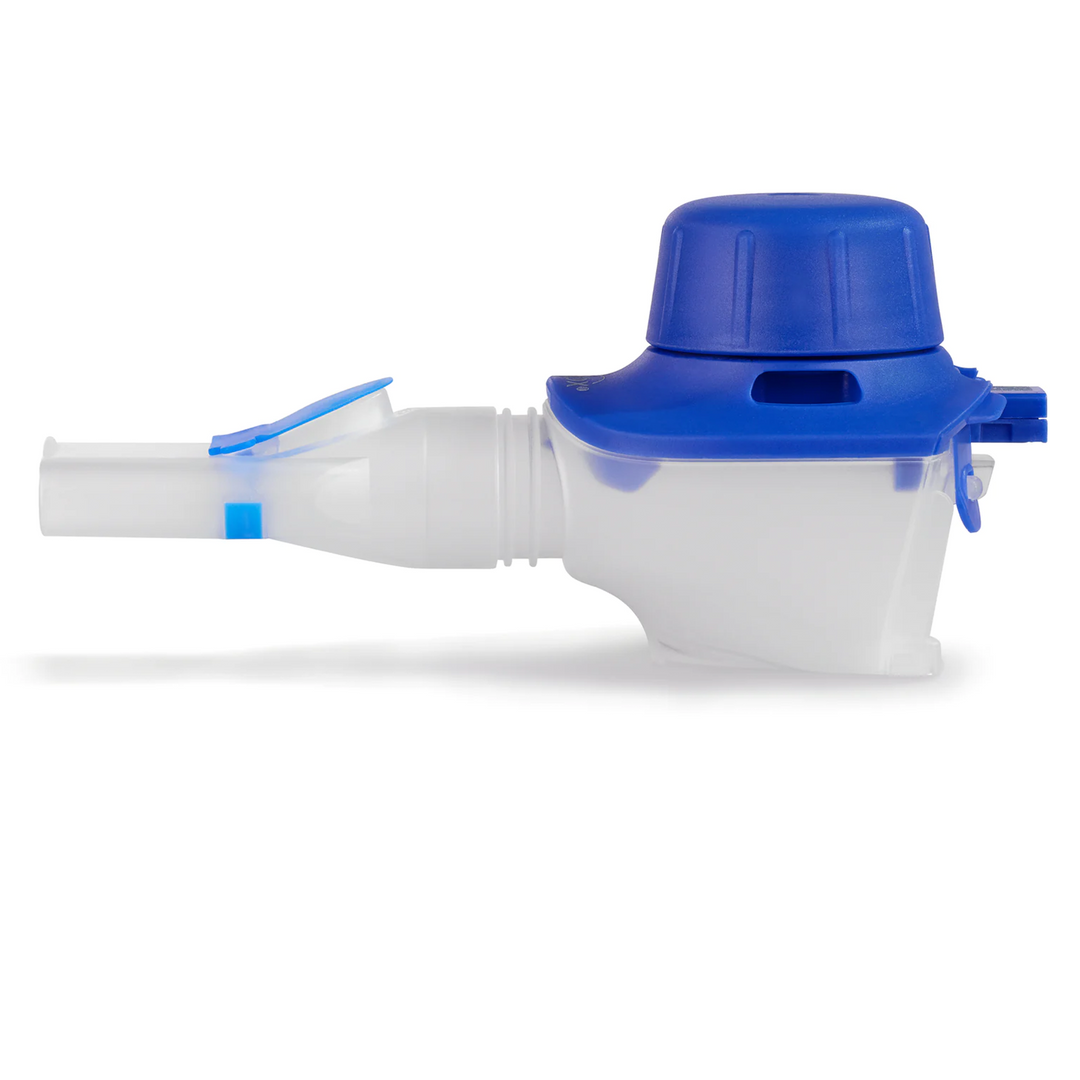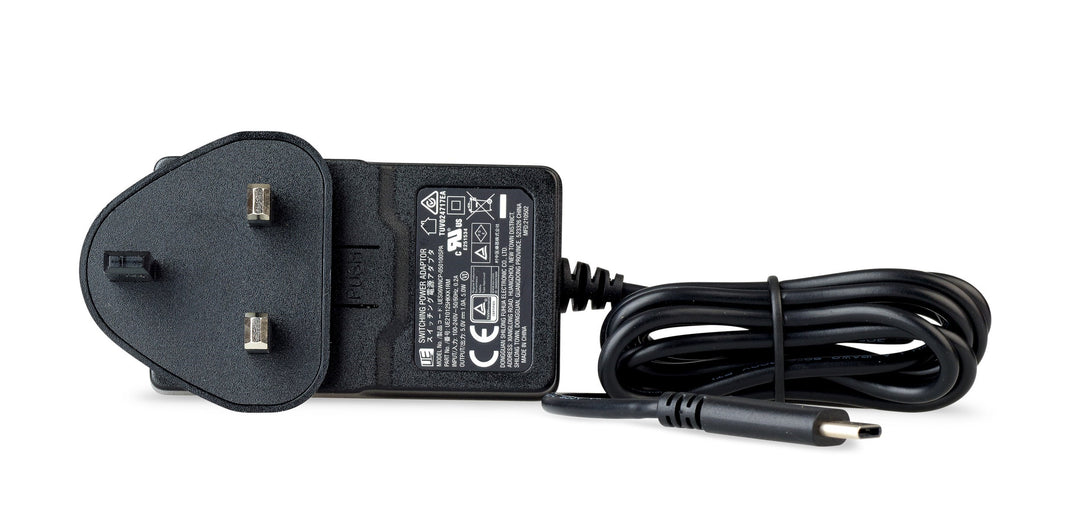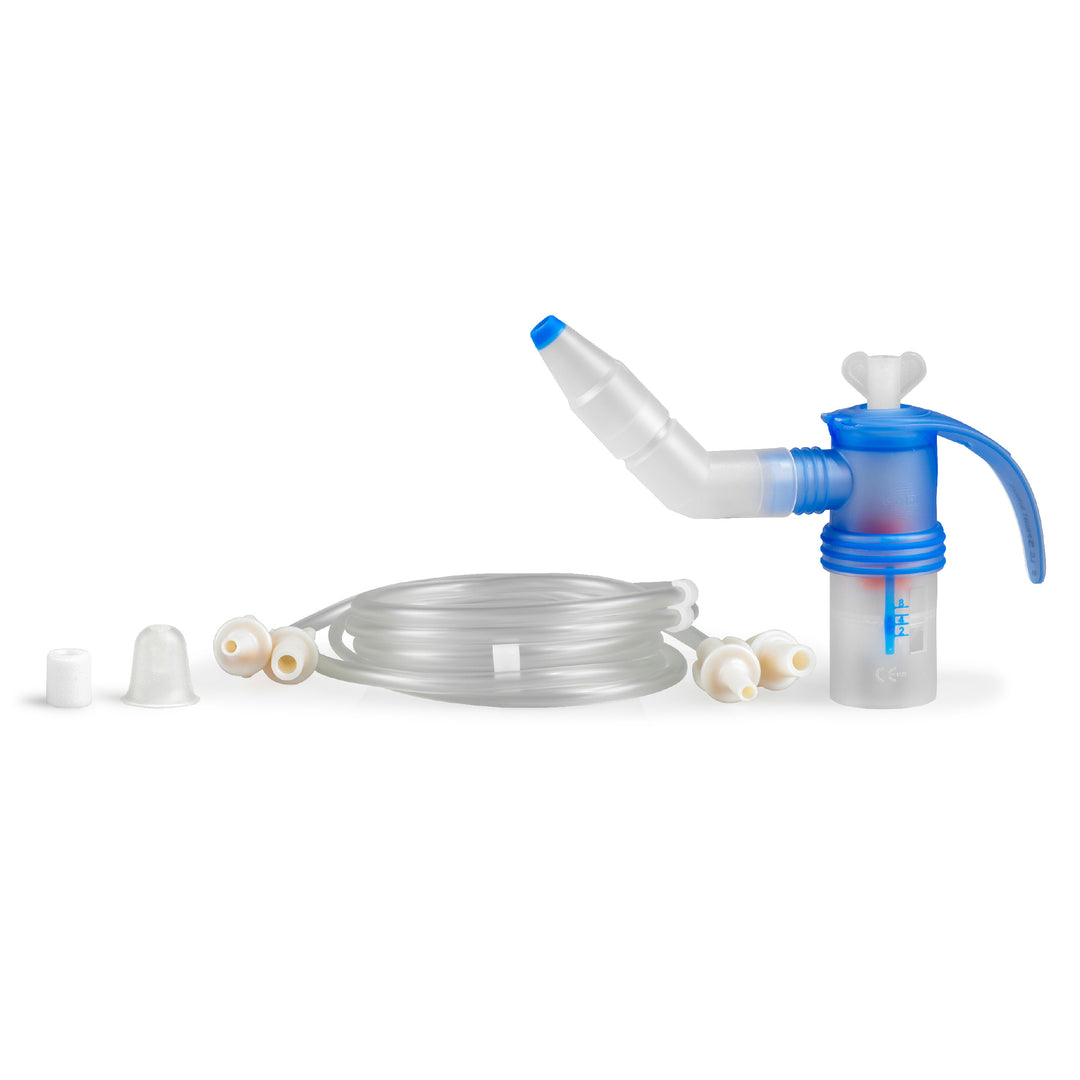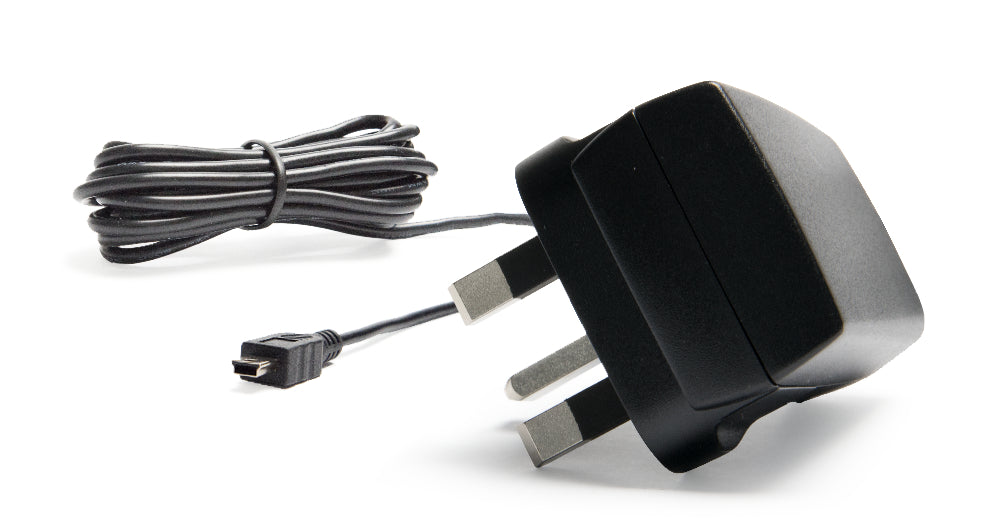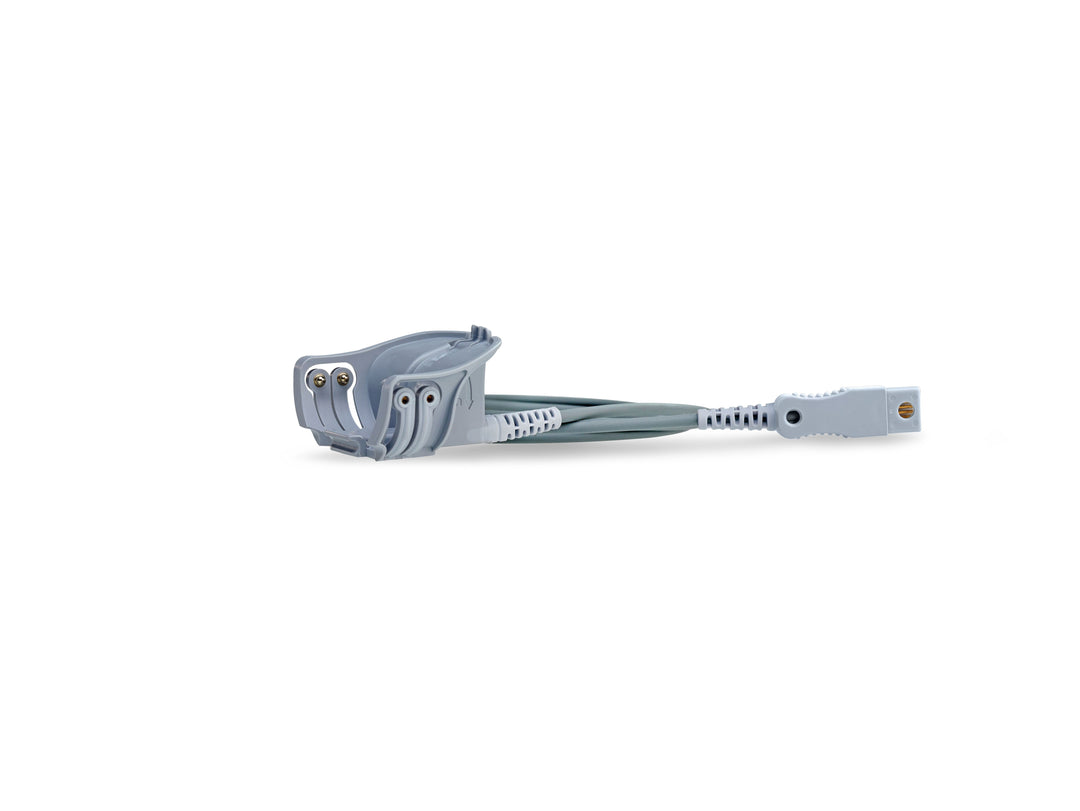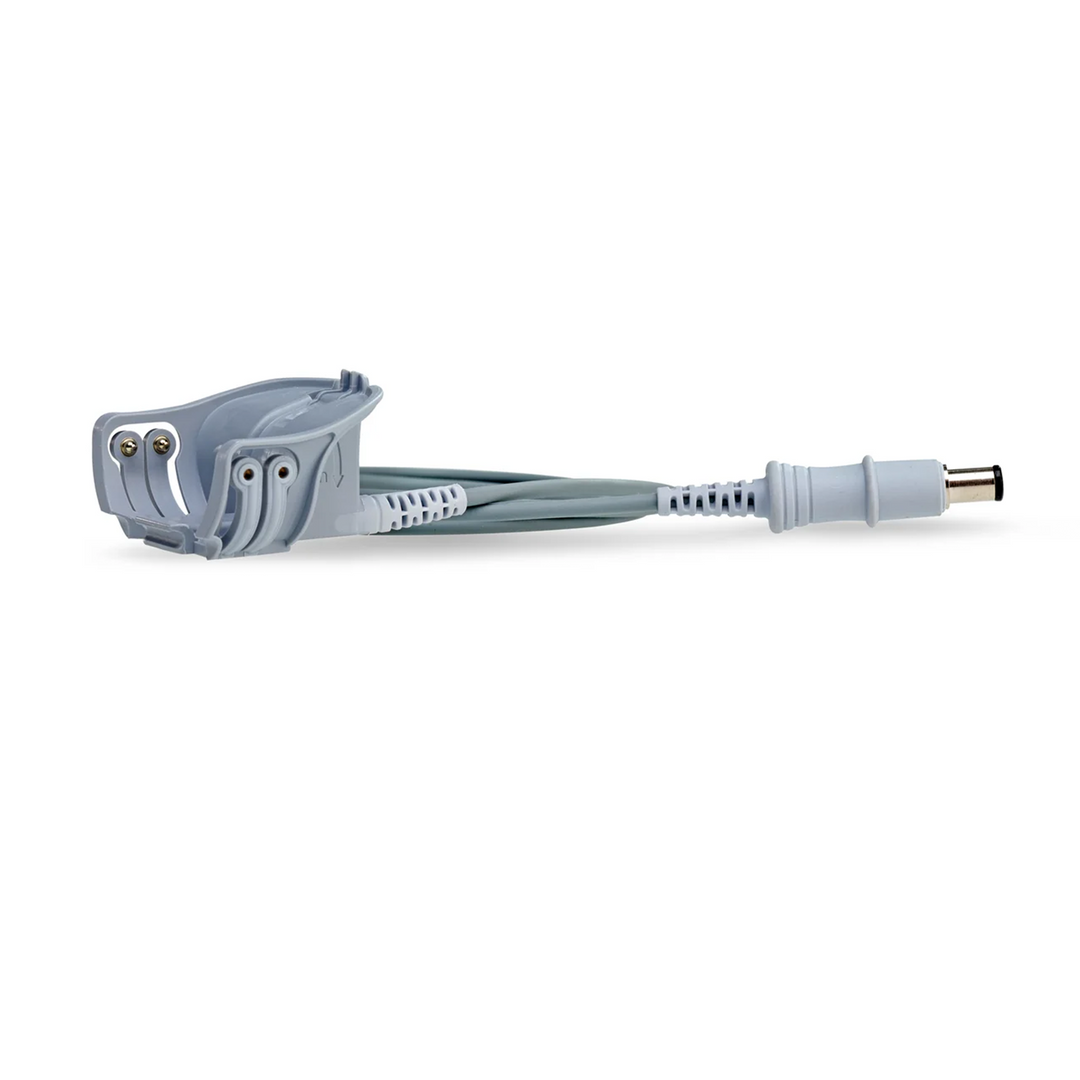
Mesh vs Compressor Nebuliser - which one is right for you?
If you (or someone you care for) have a condition like asthma, COPD, or cystic fibrosis, you might use a nebuliser. There are generally two main nebuliser types: mesh nebulisers and compressor (jet) nebulisers. Each has its own pros and cons, and choosing the right one can help make your treatment easier.
In case you are considering buying one, we have described the main differences of both types below.
What are Nebulisers?
A nebuliser turns liquid medication into a fine mist (aerosol) that you breathe into your lungs. It’s a device that can be especially useful for people who have difficulty using inhalers or need higher doses of medication.
There are two primary types:
- Compressor (Jet) Nebulisers: Use compressed air to turn liquid medication into a mist.
- Mesh Nebulisers: Use a vibrating mesh (with microscopic holes) to generate a mist.
Compressor (Jet) Nebulisers
These are the traditional type of nebuliser and have been used for decades.
A compressor (jet) nebuliser consists of a compressor to produce air, a chamber for the nebuliser solution, and tubing to connect them together. They are normally operated by mains power.
We recommend choosing a high quality device as used by the NHS, such as the PARI BOY Classic or the PARI COMPACT2
✅ Pros of Compressor Nebulisers
- Cost-Effective - jet nebulisers are generally more affordable and widely available.
- Compatible with Most Medications - they can handle a wide range of medications, including thicker ones such as liquid antibiotics.
- Durable and Reliable - these devices can last for years with proper maintenance, and replacement parts are typically inexpensive.
- No Battery Needed - since they are usually plug-in devices, there's no worry about recharging or battery replacement.
❌ Cons of Compressor Nebulisers
- Bulky and noisy - the compressor produces noise, which can be inconvenient for travelling.
- Slightly longer treatment times - compared to most mesh nebulisers they can take longer.
- Need to be plugged in - this may limit their portability and limit travelling.
Mesh Nebulisers
These use a vibrating mesh to push the medication through tiny holes, creating a fine mist.
Choose a mesh nebuliser subject to strict quality-control measures such as the VELOX or eFlow®rapid
✅ Pros of Mesh Nebulisers
- Quiet and portable - these are compact, lightweight, and almost silent - great for travel or discreet use.
- Faster treatment times - a cutting-edge nebuliser such as the eFlow rapid cuts treatment time in half compared to a compressor nebuliser.
- Battery operated - many models run on batteries or USB, making them convenient on the go.
- Better for kids - the whisper-quiet operation can be easier for children to tolerate.
❌ Cons of Mesh Nebulisers
- More expensive - they tend to cost more than compressor models.
- Need care - the mesh can clog or break if not cleaned carefully.
- Not always matched to all medications - some thick medications can clog the mesh, so cleaning is much more important to keep them working properly.
Which One Should You Choose?
|
Factor |
Best Option |
|
Budget-friendly |
Compressor Nebuliser |
|
Long-lasting |
Compressor Nebuliser |
|
Use with all medications |
Compressor Nebuliser |
|
Portability |
Mesh Nebuliser |
|
Fast treatments |
Mesh Nebuliser |
|
Quiet use (for kids, travel) |
Mesh Nebuliser |
Tips for Choosing and Using a Nebuliser
- Consult your doctor or pharmacist: Some medications work better with certain types of nebulisers.
- Consider your lifestyle: Do you need something for home use or travel?
- Clean regularly: Follow the manufacturer's cleaning guidelines to keep your device working well.
- Check battery life: Make sure it meets your needs, especially if you travel frequently.
Both mesh and compressor nebulisers have their strengths. If you're looking for portability and speed, a mesh nebuliser is a great modern option. If you want reliability and durability, a compressor nebuliser may suit you better.
Ultimately, the best nebuliser is the one that fits your medical needs, lifestyle, and budget. Talk to your healthcare provider to decide what’s right for you.
Got questions about nebulisers? Drop us a line — we’re here to help you!


